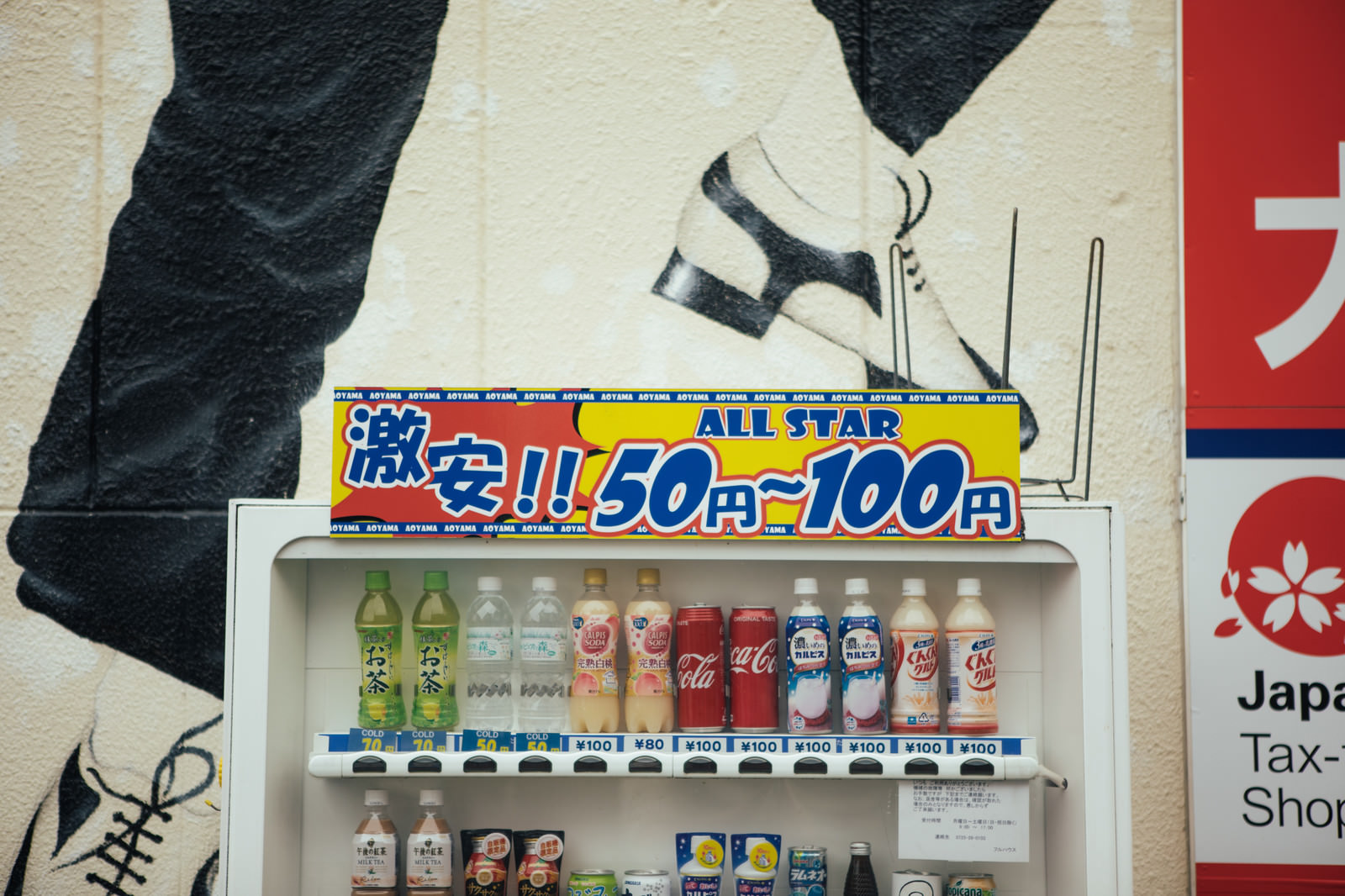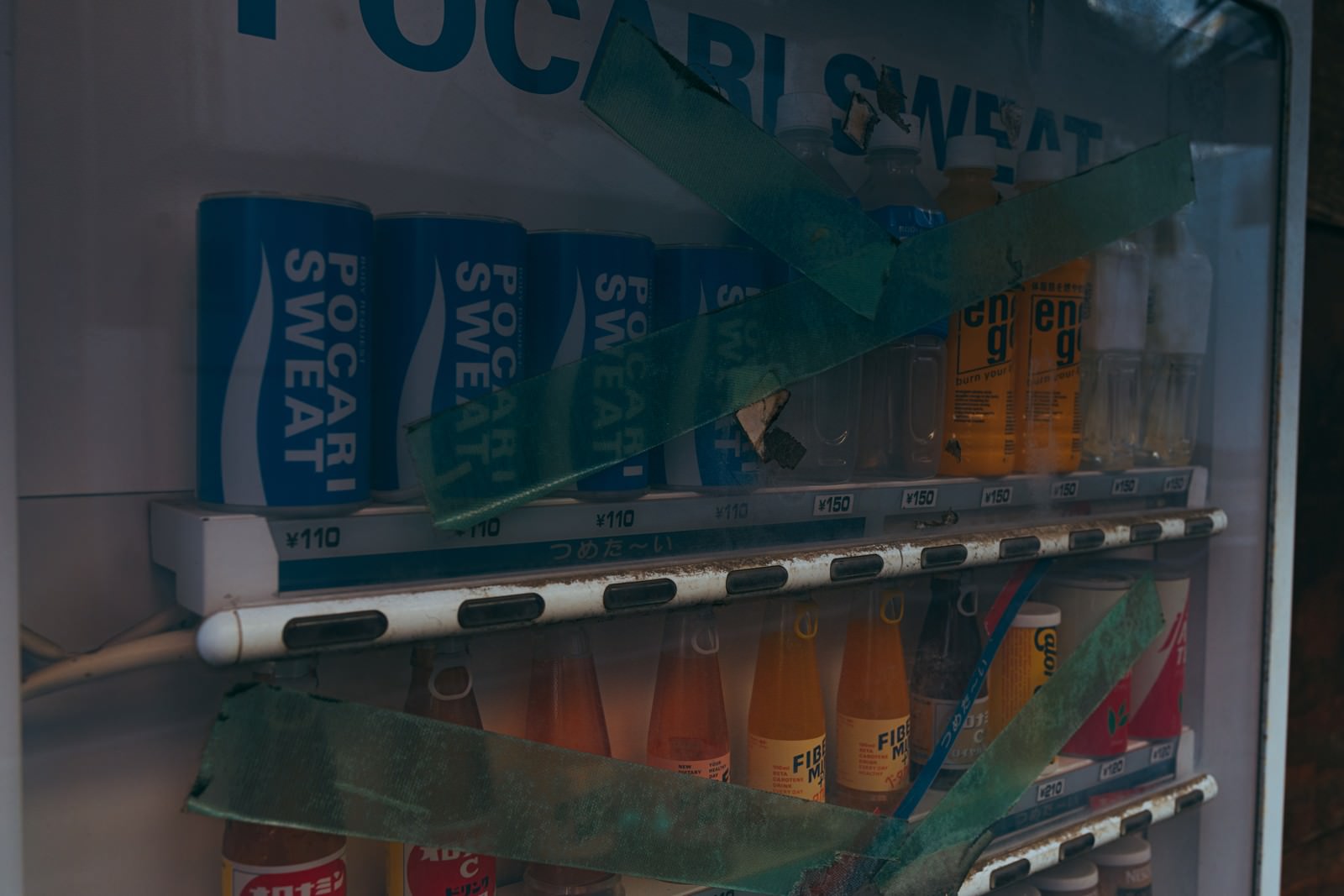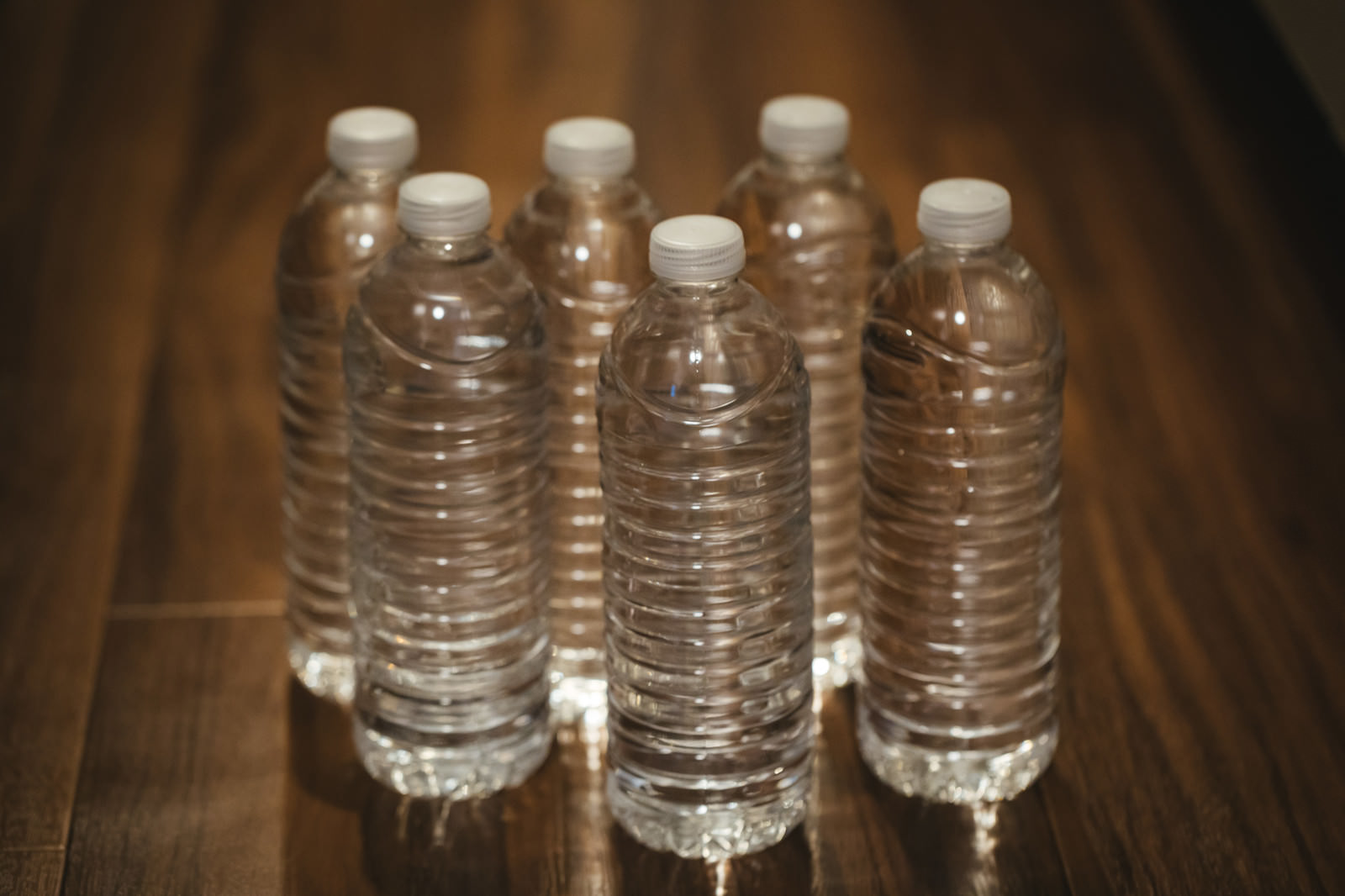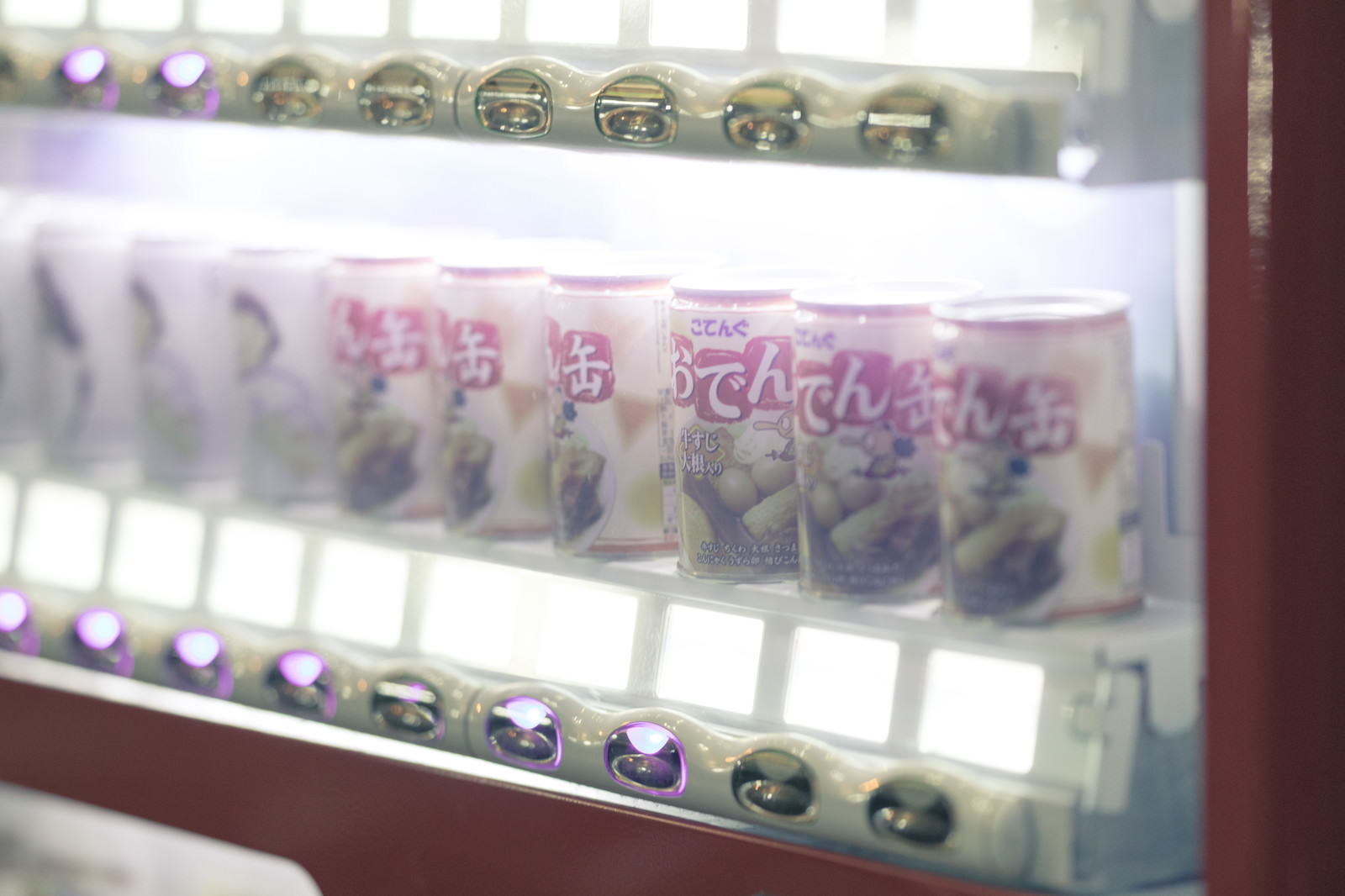
Conflicting reports were made regarding incident after powerful quake on New Year’s Day.
Desperate times call for desperate measures, or so the saying goes. But how desperate should times be when you’re allowed to break into a vending machine to get a drink? A recent incident in which evacuees did just that in the wake of the Note Earthquake prompted a debate about whether any time is desperate enough. At the same time, it also managed to provoke a conversation about journalistic integrity, too.
It all started with an article posted by Japanese newspaper Yomiuri Shimbun, which initially reported the incident on January 6. In it, the newspaper reported that a witness had testified that a vending machine at Anamizu High School had been broken into and its drinks and cash stolen.
The article wrote that, according to the 30-year-old witness and the school, the incident had occurred on the night of January 1, shortly after the earthquake, when about 100 people had evacuated to the school grounds in the wake of tsunami warnings. Around 8 p.m., the article stated, four or five men and women in their forties or fifties pulled up in a car with a Kanazawa license plate, entered the school, which was reportedly locked up but accessible because its windows had shattered in the quake, and, citing “an emergency”, broke open the vending machine with a tool that looked like a chainsaw and stole the cash and drinks inside.
“A shrill noise echoed throughout the school,” the witness reportedly said. “The evacuation center became embroiled in panic, and nobody could stop them.” The principal of the school, Kenichi Shimazaki, was reported as saying, “This incident is unforgivable because it made the evacuees feels unsafe.” Together with the article was a photo of a vending machine that appeared to have been opened up and ripped apart.
However, another newspaper, Hokkoku Shimbun, presented a differing account of the events. On January 6, they reported that the alleged group had wrenched open the vending machine with a tool and set out the drinks for the evacuees. The newspaper reported speaking to the people who broke into the machine, who said, “We’re evacuees ourselves, and we checked with the people in charge whether we could break into the machine to supply drinks.” According to Hokkoku Shimbun, the local police were not considering it to be criminal activity.
Perhaps as a result of the questions that arose from their first article, and the Hokkoku Shimbun article reporting contrasting facts, the original Yomiuri Shimbun article disappeared with no notice from the newspaper (though it is preserved in Internet archives), and on January 20 they published a new article stating that Hokuriku Coca-Cola, the company that manages Coca-Cola vending machines in Ishikawa prefecture, filed a criminal complaint on January 18. According to the article, a representative said, “We had not given permission for the machine to be broken into. Just because an emergency situation has occurred does not always mean such actions are allowed.”
Notably, this article omits any mention of cash being stolen, but reports that the drinks were “removed and distributed to the evacuees, and the machine was destroyed without permission from the company or the school.” The prefectural police, it was reported, were speaking to people associated with the incident in order to determine if it was a case of property damage.
It then continued by stating that a group of four or five men and women, citing “an emergency”, broke into the vending machine around 8 p.m. on January 1 using a tool, destroyed the interior, and removed the drinks to distribute to the evacuees. There was no further mention of a car with a Kanazawa license plate, though the article did reiterate that the school was locked up, in spite of broken glass providing access.
The article lastly reported that at the time, there were no teachers or administrators on campus, and therefore no one to give permission to break into the machine. The principal said that he “only heard after the fact from an acquaintance that the expensive vending machine had been broken without permission.”
A follow-up article was then published by Yomiuri Shimbun on January 23, which reported that a woman confessed to breaking open the vending machine and apologized to Hokuriku Coca-Cola by phone, stating, “I wasn’t in my right mind after the earthquake. There were people who had evacuated with their children, so I came up with the idea to give them water. I’m very sorry.” Apparently, she also offered to reimburse the company, but a representative from Hokuriku Coca-Cola is quoted as saying the company will not be demanding repayment for damages and won’t be filing a criminal complaint against her, because “it was a case of unusual circumstances right after an earthquake.”
It was also revealed by Yomiuri that two other vending machines were also pried open and their contents distributed to the evacuees, but the companies that own them, Megmilk Snow and Meiji, have not stated whether they will file for damages or not.
Following the report that Hokuriku Coca-Cola will not be pressing damages, online reactions have included:
“I appreciate Coca-Cola’s generosity and thoughtfulness.”
“Well, Coca-Cola does donate tens of thousands bottles of Irohasu water immediately after earthquakes. This vending machine incident shows that they’re a wonderful company.”
“Since it was an emergency, that’s the response I’d expect from them.”
“I think I’ll have a Coke today.”
“I think it’s magnificent that they won’t be asking for compensation because of this special circumstances. However, it’d be a problem if people start thinking they can break into vending machines in emergencies.”
“Good job, Coca-Cola. The person who called to apologize and offer repayment is also impressive.”
Meanwhile, if you want to help support the relief and recovery efforts, you don’t have to commit a potential crime, nor be like J-rock star Yoshiki and auction off a priceless crystal piano; for us ordinary people, it’s as simple as watching the anime Hanasaku Iroha on YouTube, whose proceeds will go towards earthquake relief efforts. You can also plan a trip to Ishikawa prefecture to support their tourism industry–though for now it’s best to avoid the Noto peninsula while recovery efforts are underway.
Source: Yomiuri Shimbun via Internet Archives, Hokkoku Shimbun via Hachima Kiko, Yomiuri Shimbun (1, 2), Twitter/@livedoornews
Top image: Pakutaso
Insert image: Pakutaso (1, 2, 3)




 Weekly Shonen Champion manga magazine offers several issues for free in light of Noto Earthquake
Weekly Shonen Champion manga magazine offers several issues for free in light of Noto Earthquake How well do you know your Japanese vending machines?【Quiz】
How well do you know your Japanese vending machines?【Quiz】 Japanese vending machine sells PCR tests at 350-year-old temple in Tokyo【Photos】
Japanese vending machine sells PCR tests at 350-year-old temple in Tokyo【Photos】 Starbucks Japan unveils new sakura cherry blossom collection for hanami season 2026
Starbucks Japan unveils new sakura cherry blossom collection for hanami season 2026 Is Tokyo Station’s startlingly expensive wagyu bento boxed lunch worth its high price?[Taste test]
Is Tokyo Station’s startlingly expensive wagyu bento boxed lunch worth its high price?[Taste test] Kyoto raises hotel accommodation tax to fight overtourism, travelers could pay up to 10 times more
Kyoto raises hotel accommodation tax to fight overtourism, travelers could pay up to 10 times more Sakuramochi festival sweetens things up at Tokyo’s Seibu Ikebukuro this season
Sakuramochi festival sweetens things up at Tokyo’s Seibu Ikebukuro this season Sakura Festival in Chiyoda mixes illuminations, boats, music, and Rilakkuma in the heart of Tokyo
Sakura Festival in Chiyoda mixes illuminations, boats, music, and Rilakkuma in the heart of Tokyo Starbucks Japan releases new sakura goods and drinkware for cherry blossom season 2026
Starbucks Japan releases new sakura goods and drinkware for cherry blossom season 2026 Japan Extreme Budget Travel! A trip from Tokyo to Izumo for just 30,000 yen [Part 1]
Japan Extreme Budget Travel! A trip from Tokyo to Izumo for just 30,000 yen [Part 1] Japanese Prime Minister once criticized deploying military to fight Godzilla
Japanese Prime Minister once criticized deploying military to fight Godzilla Which convenience store onigiri rice balls are the most popular? Survey reveals surprising results
Which convenience store onigiri rice balls are the most popular? Survey reveals surprising results Japanese-style accommodation at the new Premium Dormy Inn hotel in Asakusa will blow your mind
Japanese-style accommodation at the new Premium Dormy Inn hotel in Asakusa will blow your mind Starbucks Japan releases first-ever Hinamatsuri Girls’ Day Frappuccino
Starbucks Japan releases first-ever Hinamatsuri Girls’ Day Frappuccino Japanese restaurant chain serves Dragon Ball donuts and Senzu Beans this spring
Japanese restaurant chain serves Dragon Ball donuts and Senzu Beans this spring Highest Starbucks in Japan set to open this spring in the Tokyo sky
Highest Starbucks in Japan set to open this spring in the Tokyo sky Japan’s craziest burger chain takes menchi katsu to new extreme levels
Japan’s craziest burger chain takes menchi katsu to new extreme levels Japan Extreme Budget Travel! A trip from Tokyo to Izumo for just 30,000 yen [Part 2]
Japan Extreme Budget Travel! A trip from Tokyo to Izumo for just 30,000 yen [Part 2] Japan has only one airport named after a samurai, so let’s check out Kochi Ryoma【Photos】
Japan has only one airport named after a samurai, so let’s check out Kochi Ryoma【Photos】 Japanese drugstore sells onigiri at pre-stupid era prices, but how do they compare to 7-Eleven?
Japanese drugstore sells onigiri at pre-stupid era prices, but how do they compare to 7-Eleven? Viral Japanese cheesecake from Osaka has a lesser known rival called Aunt Wanda
Viral Japanese cheesecake from Osaka has a lesser known rival called Aunt Wanda Japan’s newest Shinkansen has no seats…or passengers [Video]
Japan’s newest Shinkansen has no seats…or passengers [Video] Foreigners accounting for over 80 percent of off-course skiers needing rescue in Japan’s Hokkaido
Foreigners accounting for over 80 percent of off-course skiers needing rescue in Japan’s Hokkaido Super-salty pizza sends six kids to the hospital in Japan, linguistics blamed
Super-salty pizza sends six kids to the hospital in Japan, linguistics blamed Starbucks Japan unveils new sakura Frappuccino for cherry blossom season 2026
Starbucks Japan unveils new sakura Frappuccino for cherry blossom season 2026 Foreign tourists in Japan will get free Shinkansen tickets to promote regional tourism
Foreign tourists in Japan will get free Shinkansen tickets to promote regional tourism The 10 most annoying things foreign tourists do on Japanese trains, according to locals
The 10 most annoying things foreign tourists do on Japanese trains, according to locals Take a trip to Japan’s Dododo Land, the most irritating place on Earth
Take a trip to Japan’s Dododo Land, the most irritating place on Earth Naruto and Converse team up for new line of shinobi sneakers[Photos]
Naruto and Converse team up for new line of shinobi sneakers[Photos] Is China’s don’t-go-to-Japan warning affecting the lines at a popular Tokyo gyukatsu restaurant?
Is China’s don’t-go-to-Japan warning affecting the lines at a popular Tokyo gyukatsu restaurant? Survey asks foreign tourists what bothered them in Japan, more than half gave same answer
Survey asks foreign tourists what bothered them in Japan, more than half gave same answer Japan’s human washing machines will go on sale to general public, demos to be held in Tokyo
Japan’s human washing machines will go on sale to general public, demos to be held in Tokyo Starbucks Japan releases new drinkware and goods for Valentine’s Day
Starbucks Japan releases new drinkware and goods for Valentine’s Day We deeply regret going into this tunnel on our walk in the mountains of Japan
We deeply regret going into this tunnel on our walk in the mountains of Japan Studio Ghibli releases Kodama forest spirits from Princess Mononoke to light up your home
Studio Ghibli releases Kodama forest spirits from Princess Mononoke to light up your home Major Japanese hotel chain says reservations via overseas booking sites may not be valid
Major Japanese hotel chain says reservations via overseas booking sites may not be valid Put sesame oil in your coffee? Japanese maker says it’s the best way to start your day【Taste test】
Put sesame oil in your coffee? Japanese maker says it’s the best way to start your day【Taste test】 No more using real katana for tourism activities, Japan’s National Police Agency says
No more using real katana for tourism activities, Japan’s National Police Agency says